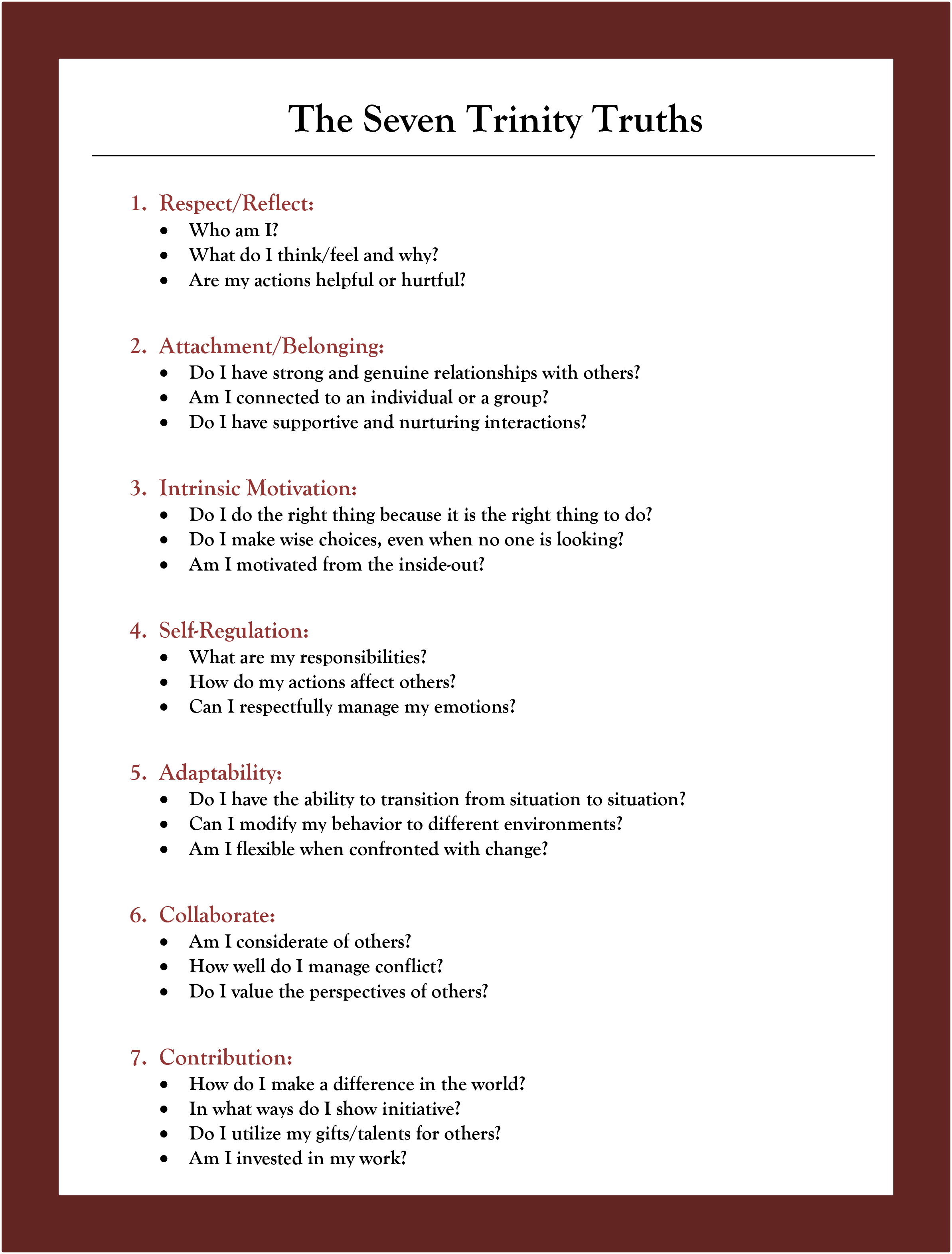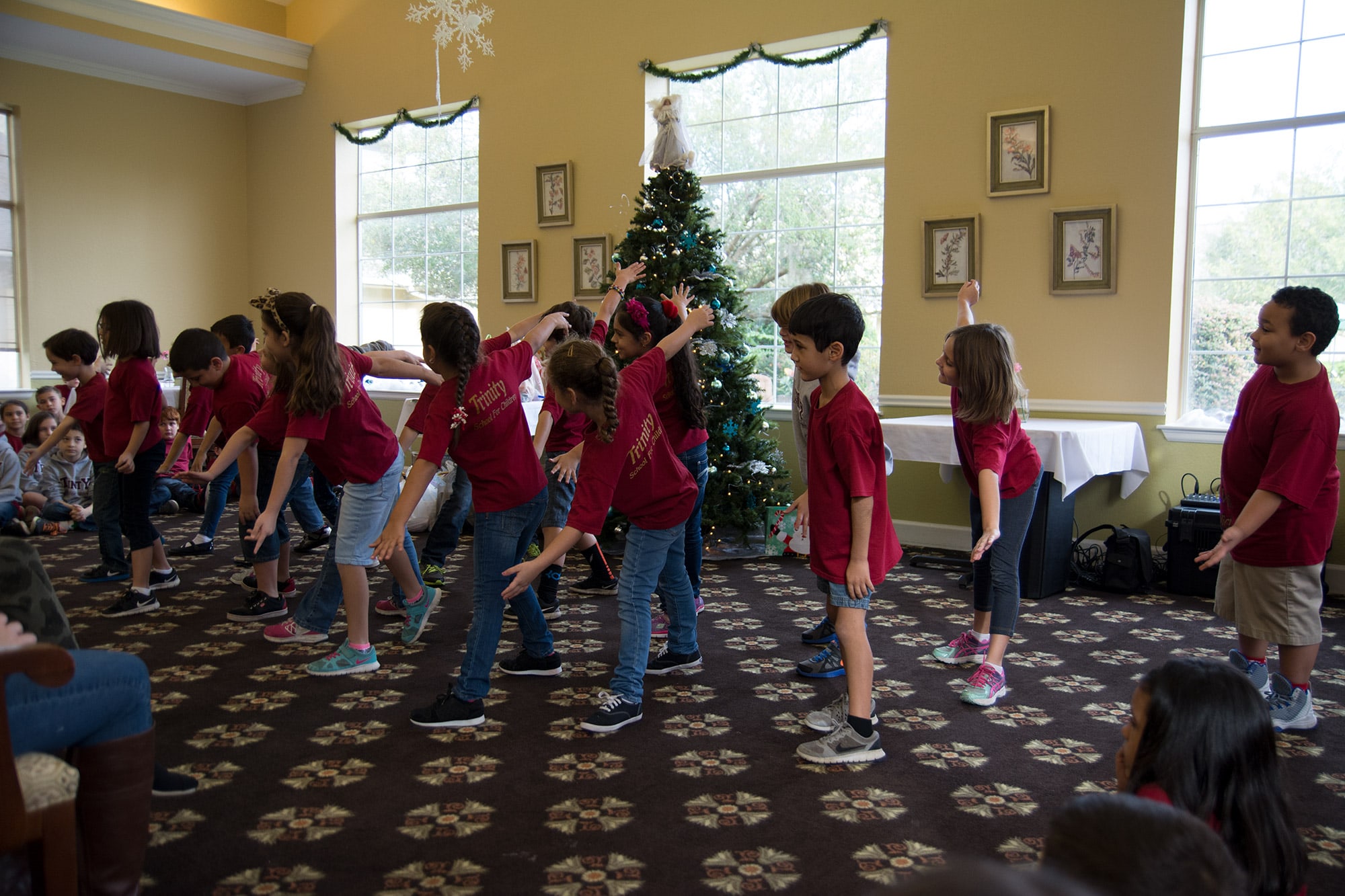About
Welcome to Trinity School for Children
Imagine developing a school where students can discover, learn, experiment, and create their own knowledge. Imagine a school where students feel safe and trust their environment. Imagine a school where experiences are created to allow students to integrate and accommodate their own personal feelings and ideas within an ethical framework that encourages taking risks and the creation of civic ideals. Such a place exists at Trinity School for Children. Since 1999, we have been working diligently to live up to the ideals set forth by Lucy Sprague Mitchell, Bank Street College, New York. Replicating their laboratory school has been a dream for all of our founders, educators, students and families involved.
Thank you for visiting our web site and taking the time to get to know us.Our History
Trinity School for Children was established in 1999 as a charter school in the Hillsborough County School District in the state of Florida. Our goal was to replicate the laboratory school at Bank Street College of Education, New York completely serving infants through students in the Eighth Grade.
With the goal of replication, Dr. Madeline O'Dea, a Bank Street College of Education graduate and now the President Emeritus, along with a group of thirteen parents and teachers, came together to create an open-enrollment elementary school with a philosophy based on the developmental-interaction approach. These Founders were dedicated to creating a school rich in culture and diversity, be an extension of the home.
While this seemed like a pipe dream to many, Trinity School for Children opened its doors on August 12, 1999 with 211 students aged three to nine. By the third year, Trinity expanded its grades and served 435 students. Today, Dr. O'Dea and Trinity's Founders' dream is a reality. Today, we enjoy an enrollment of more than 1,000 students and look forward toward many more years of success.Our Mission
Our Credo
What potentialities in human beings - children, teachers and ourselves - do we want to see develop?
- A zest for living that comes from taking in the world with all five senses alert
- Lively intellectual curiosities that turn the world into an exciting laboratory and keep one ever a learner
- Flexibility when confronted with change and ability to relinquish patterns that no longer fit the present
- The courage to work, unafraid and efficiently, in a world of new needs, new problems and new ideas
- Gentleness combined with justice in passing judgments on other human beings
- Sensitivity, not only to the external formal rights of the "other fellow" but to him as another human being seeking a good life through his own standards
- A striving to live democratically, in and out of schools, as the best way to advance our concept of democracy
Our credo demands ethical standards as well as scientific attitudes. Our work is based on faith that human beings can improve the society they have created.
Lucy Sprague Mitchell
Founder of Bank Street College of Education, 1916
Philosophy
The single most important organizing principle of the developmental-interaction approach is that in order for children to learn in school and to become lifelong learners, they must interact with their environment (people, places, things) and interpret their experience. For example, a toddler discovers the joy of watching an object hit the floor when dropped from a highchair and repeats the action over and over again. The repetition provides the toddler with an experience to help them understand the new knowledge gained. Our students, at all ages and different sophisticated levels engage in building, cooking, labs, painting and field studies to name a few, as a means to construct understanding and increased knowledge through basic life experiences.
The developmental-interaction approach encompasses the following three ideas related to how we approach teaching here at Trinity:
Experiential Education - carefully designed and executed educational experiences that are reconstructed and reflected upon in a variety of ways such as talking, drawing, building, acting.
Constructivism - the idea that a child makes discoveries from observations, explorations, and experiences and uses all of these to construct understanding. Constructivists believe that the child is the maker of learning.
Ownership of Learning - because a student is directly involved with the environment and the assorted learning experiences, he/she is more invested and excited about learning.
Our philosophy demands that we organize our classroom environments in a way that encourages a child to explore learning opportunities, use teaching strategies that engage children to make discoveries and "make meaning" of their learning.
Our studies at all levels have social studies at its core. Units of study can take one month, three months or last throughout the year. Learning in a Trinity classroom is as much a social process as a solitary one. The teacher is a facilitator of learning and the students collaborate with each other, share individual responses about artifacts, a story, a historical document, or shared experience. Students work in small groups and are tasked to create skits, posters, recreate characters or models and present to the rest of the class a particular content idea. For example, a group of Middle School students may be asked to create a mural depicting the water cycle rather than filling workbook pages. By recreating their learning, the information becomes a part of the student creating a better understanding of the subject matter.
Our younger students may open a bakery to sell baked goods to the rest of the school in order to better understand economics. The children often respond to their own reading and writing by meeting together in small groups and talking about their work. Teachers, as facilitators with expectations, act as guides and plan for rich experiences from which then students can construct meaning with increased depth and complexity. When our students branch into our Upper School, they emerge into facilitators of their own learning. Their work is extended and shared with the rest of the students at Trinity. For example, the Upper School students recreate the Festival of the Nile, an outgrowth of their study of Egypt or a Day in the Colonies, an out growth of their study of Colonial Times. The use of technology is integrated at a higher level of sophistication in order to help facilitate sharing information throughout the grades.
Through our work here at Trinity School for Children, the integrity of each child in his/her role as learner, teacher, classmate is valued and reinforced.
The Seven Trinity Truths



